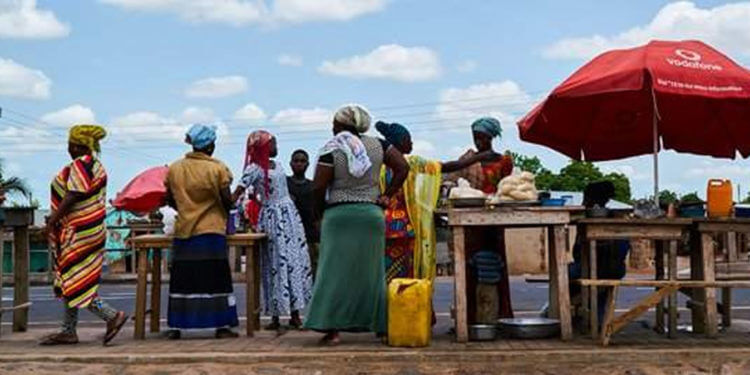On Tuesday, December 15, Afreximbank, a Pan-African multilateral trade, and finance institution released its annual African Trade Report (ATR) which examined trade and economic developments in Africa in 2019 and 2020.
2019 was characterized by trade wars and escalating tariffs that resulted in stifled global trade growth. In 2020, this has been compounded by Covid-19.
Informal Cross Border Trade
The African Trade Report which conducted an extensive study of Informal Cross-Border trade (ICBT), a major and wide-spread component of intra-African trade, highlighted the importance of ICBT and the areas that can be targeted to grow intra-African trade and transition ICBT to formality.
South Africa, Democratic Republic of Congo (DRC), Nigeria
The report estimates that in Eastern African, ICBT is very high and could be worth as much as 80% of the value of formal trade in some countries. South Africa is the biggest contributor to Intra-African trade and thus, maintained its position as the largest contributor to intra-African trade, accounting for 23.1% of total intra-African trade in 2019. The Democratic Republic of Congo (DRC) took up the second position as a major contributor to intra-African trade, accounting for 10.4% in total trade with the continent in 2019. Nigeria emerged as the third-largest intra-African trade country with about 7% in total trade despite declining by 4.7 percent.
The report estimates that ICBT which is dominated by women serves as a source of income for about 43% of Africa’s population and contributes immensely to GDP.
“Even though ICBT accounts for a significant proportion of domestic absorption and has become a major source of income for consumption smoothing, its contribution to GDP is hardly recognized,” said Prof. Benedict Oramah, President of Afreximbank.
The top 3 countries are thus benefiting from intra-African Trade and thus making efforts to boost trade. In South Africa for instance, female traders account for about 70% of ICBT which is helping to improve the livelihoods of the female traders. Nigeria is also backing down after a 16 months border closure with its neighbours (Benin and Niger) to embrace the African Continental Free Trade Area AFCTA. Ghana is thus losing out from being one of the top 3 intra-African trade countries.
According to the report, food and agriculture products accounted for 30% of intra-regional trade.
The total value intra-African trade dropped by 5.23% in 2019 reducing its contribution to overall African trade, from about 15% in 2018 to 14.4% in 2019.
However, with Ghana also taking hold of AFCTA, which is estimated will lead to around a 60% boost in intra-African trade by 2022, it is certainly hopeful that Ghana will bolster its position in intra-African free trade.
Global Trade
Global trade is expected to contract by 9.2% this year given the pandemic outbreak. Having fallen by 2.9% in 2019, Africa’s share of global trade remains lower at 2.7%, below the 4% figure of the 1970s.
The share of Africa’s exports (mainly raw commodities) to Asia increased to 30.79% in 2019 while the European Union’s share fell to 24.6%. According to the report, China and India have been the main drivers of the increased trade relationships between Africa and Asia, with China and India accounting for 27% of Africa’s total merchandise exports in 2019.
The EU, which used to be the largest market for Africa’s imports has been decreasing steadily with Asia increasingly becoming just as important as the EU.
Oil and gas, despite a significant fall in price, still accounted for 37% of total African exports in 2019
Outlook for 2021
Afreximbank believes increased intra-Africa trade is key to softening the blow of global trade tensions and external shocks. The bank also believes that trade is expected to rebound strongly in 2021 as global economic activities begin to rise from the ashes of COVID-19.
“The outlook for 2021 is positive and Africa’s trade is expected to rebound strongly in 2021 as global economic activity picks up and demand for African exports increases,” said Afreximbank in its latest trade report.
Recommendation
According to Afreximbank, certain areas can be targeted to grow intra-African trade and transition ICBT to formality. This includes removal of technical and non-tariff barriers to trade, and increasing access to finance. Also creating payment systems that draw on digitalization to mitigate risks.
Afreximbank, is currently rolling out its Pan-African Payments and Settlements System (PAPSS) to enable buyers and sellers trade in local currency.










